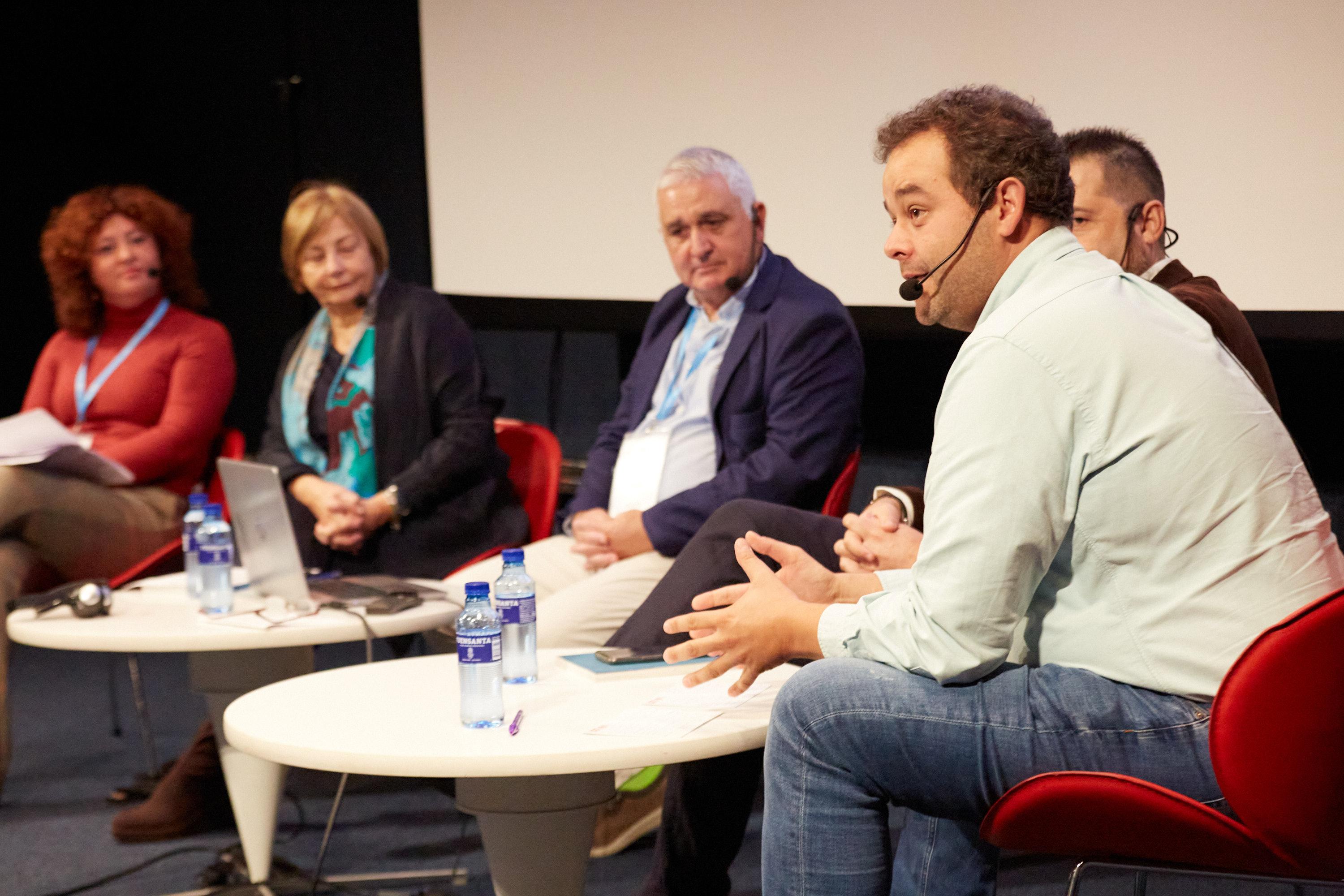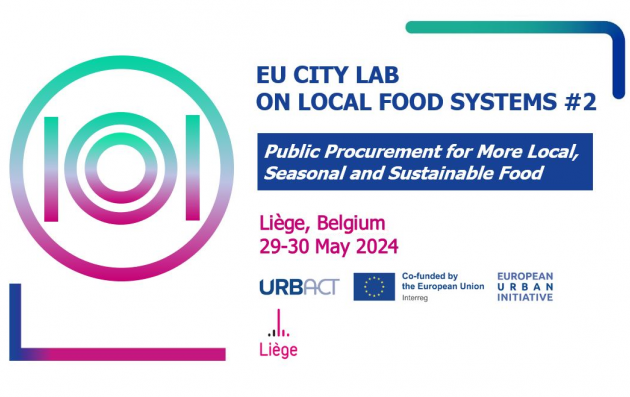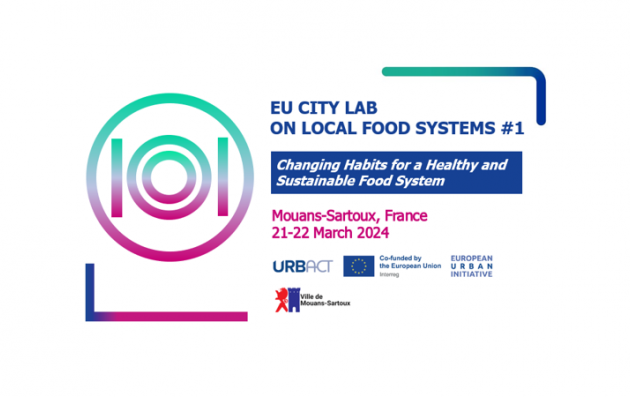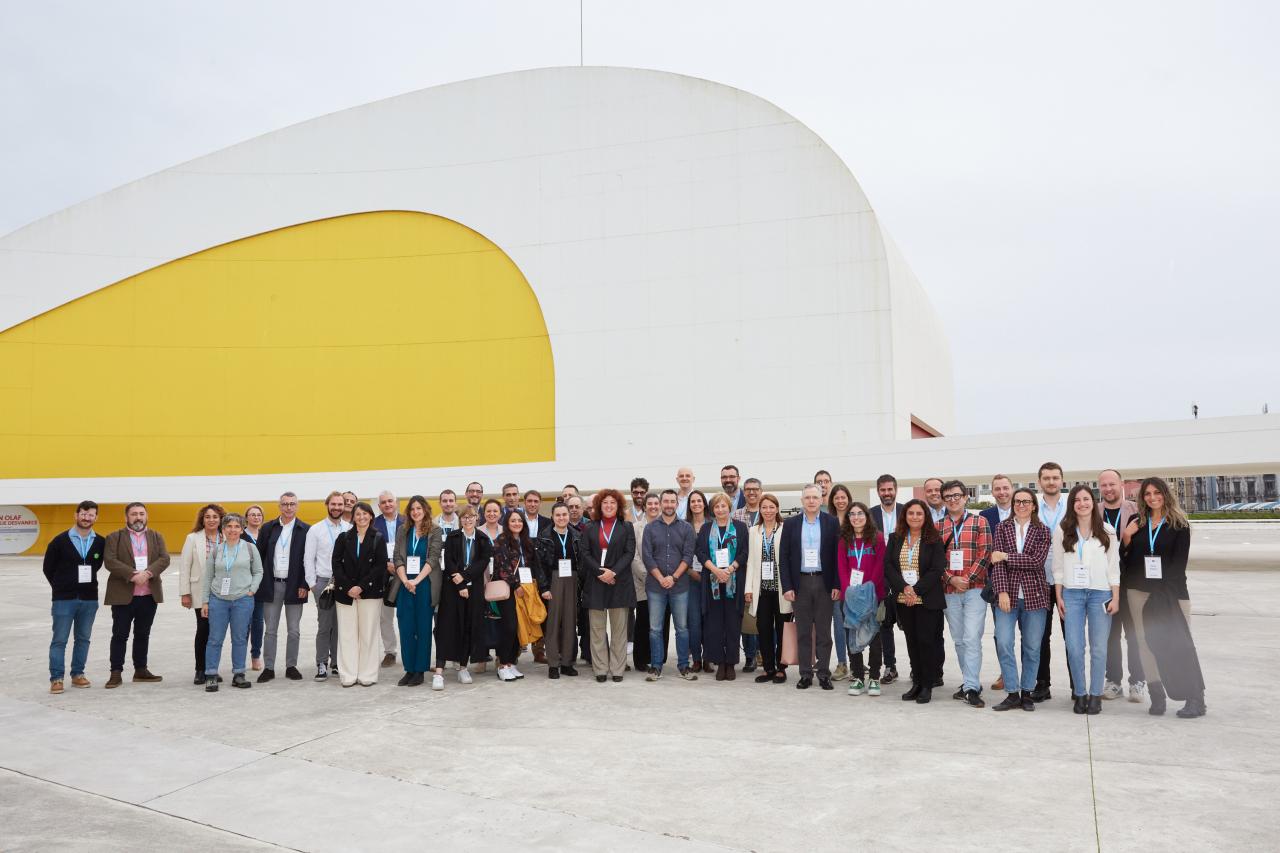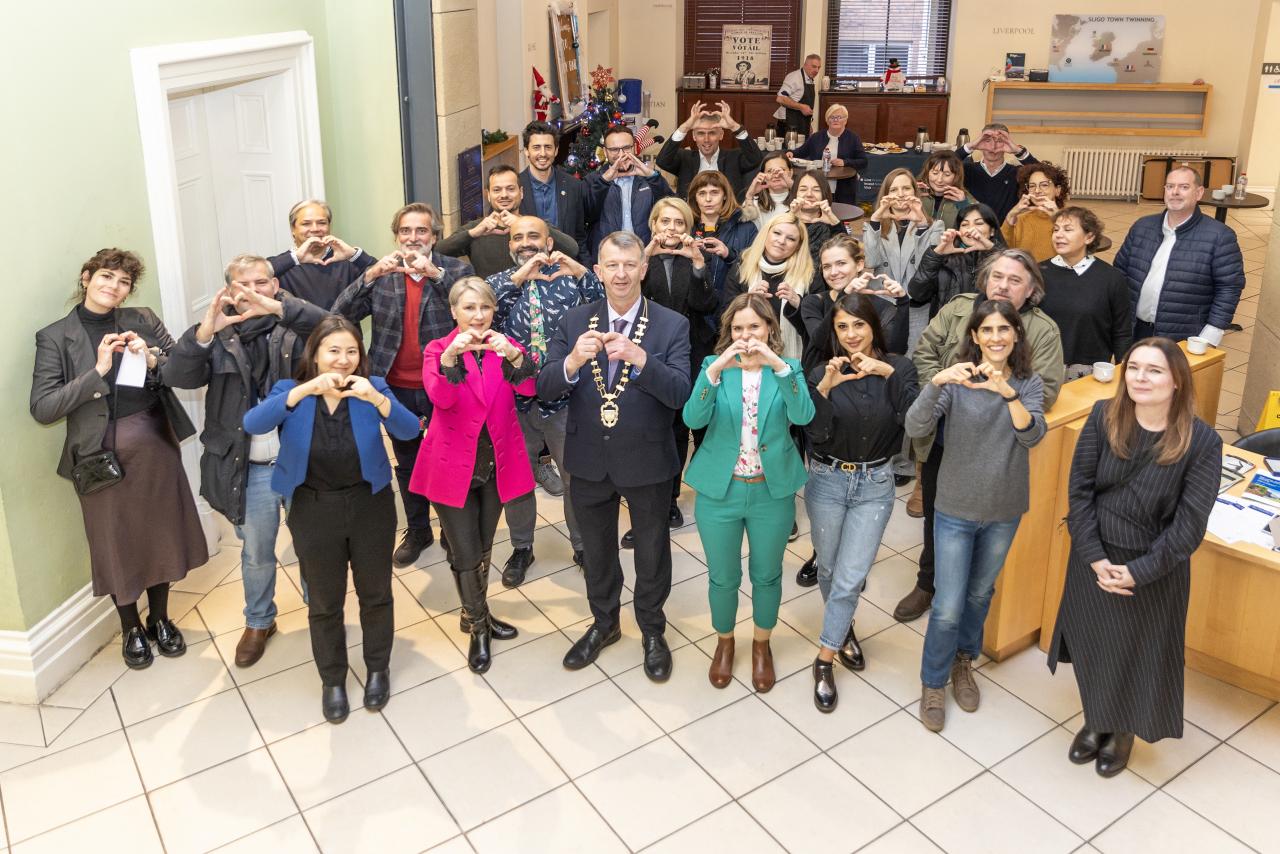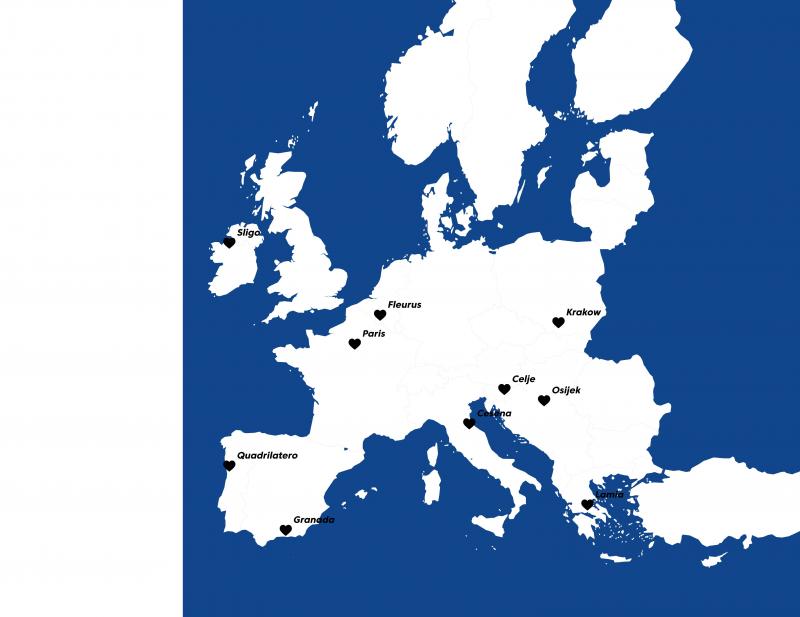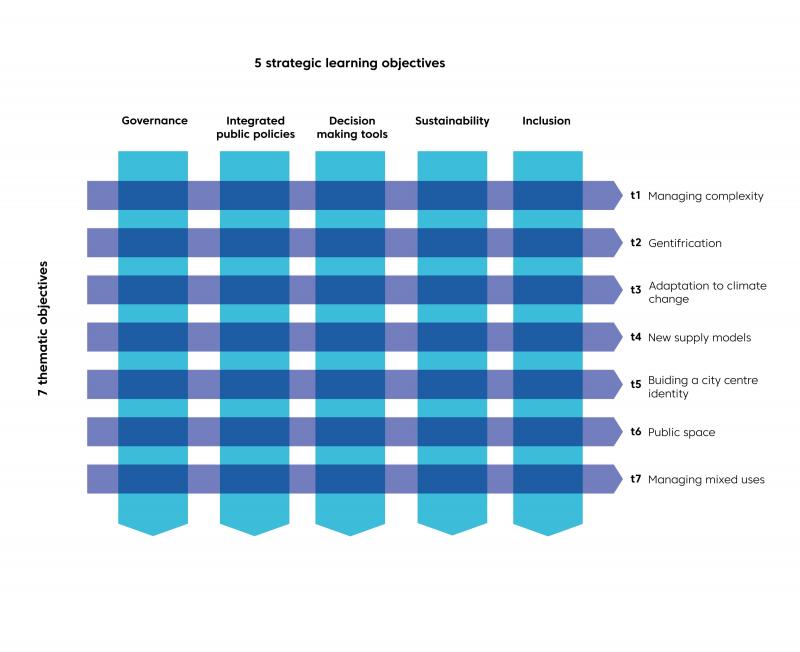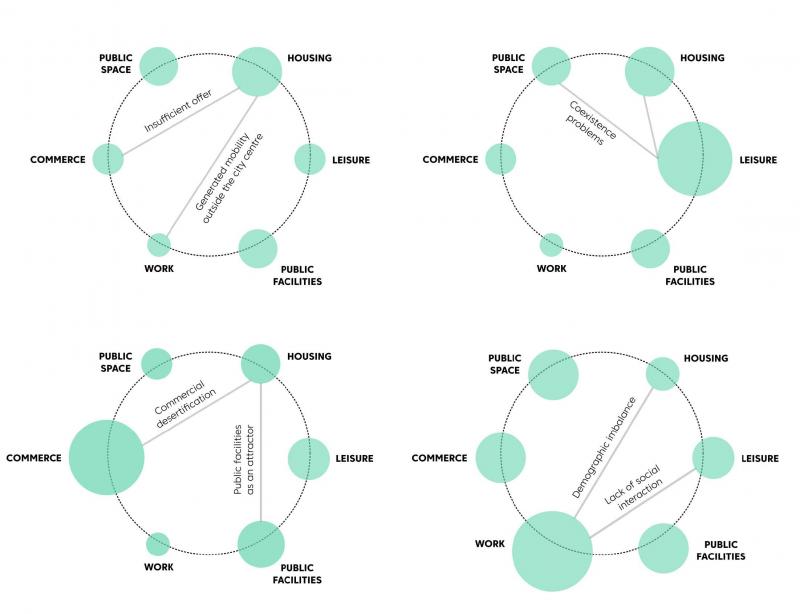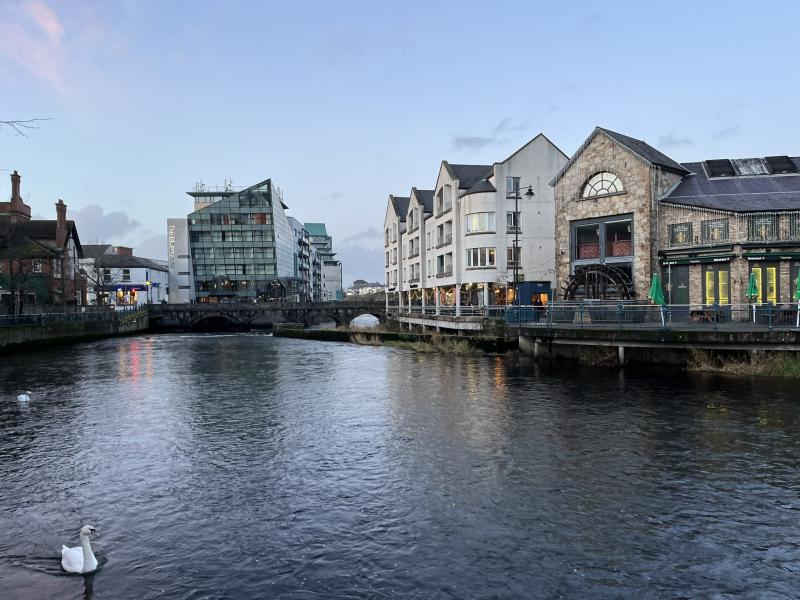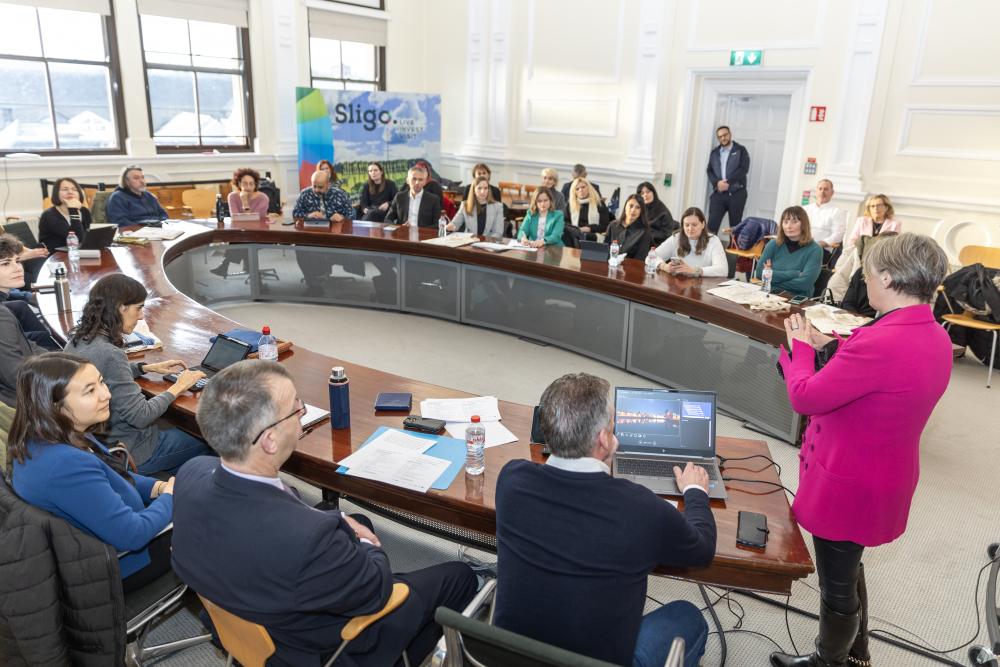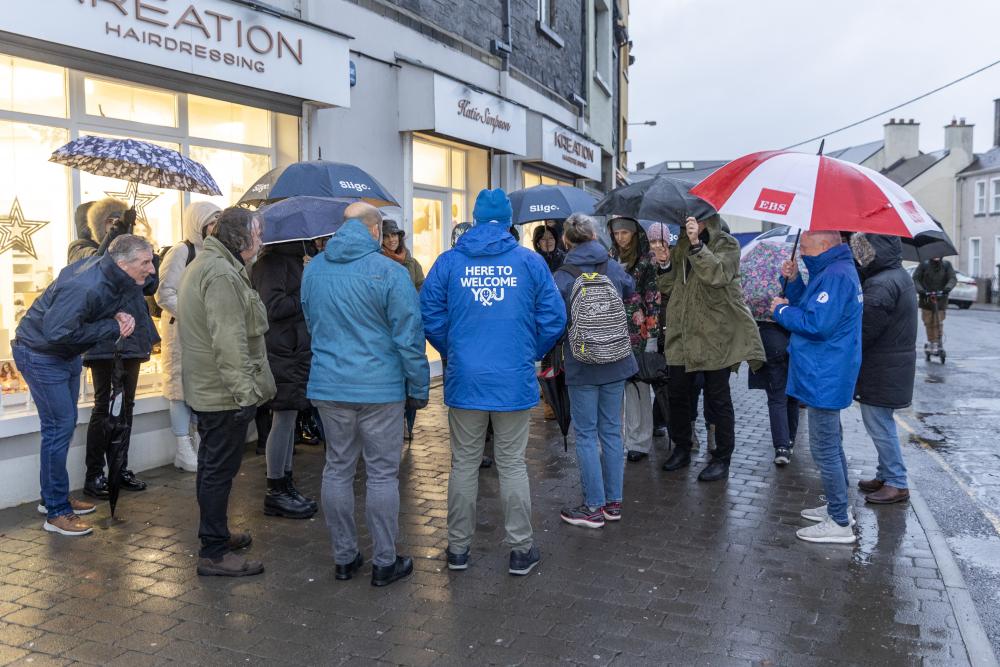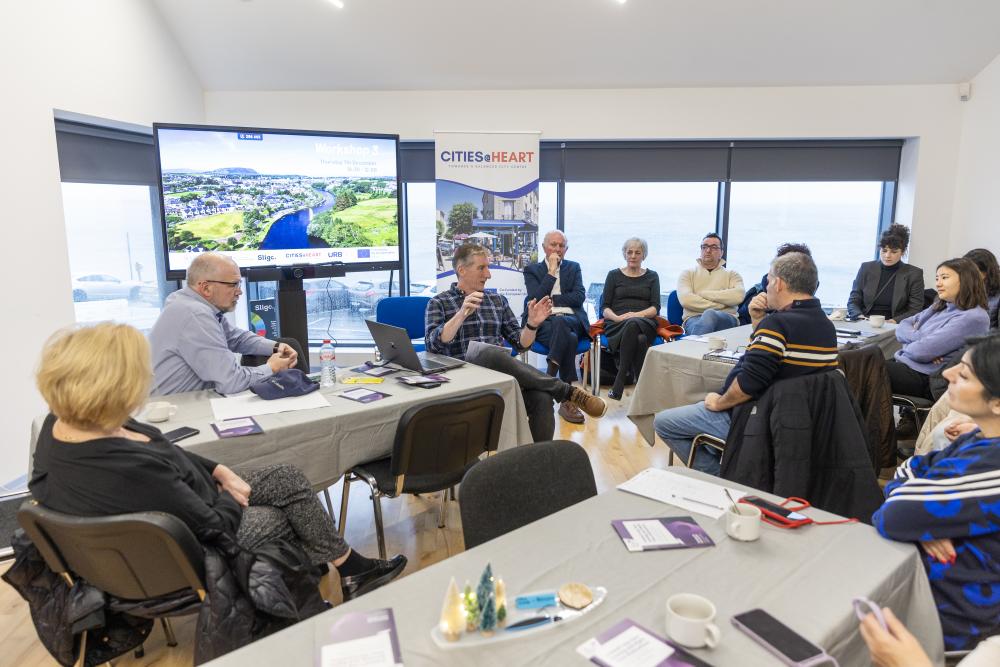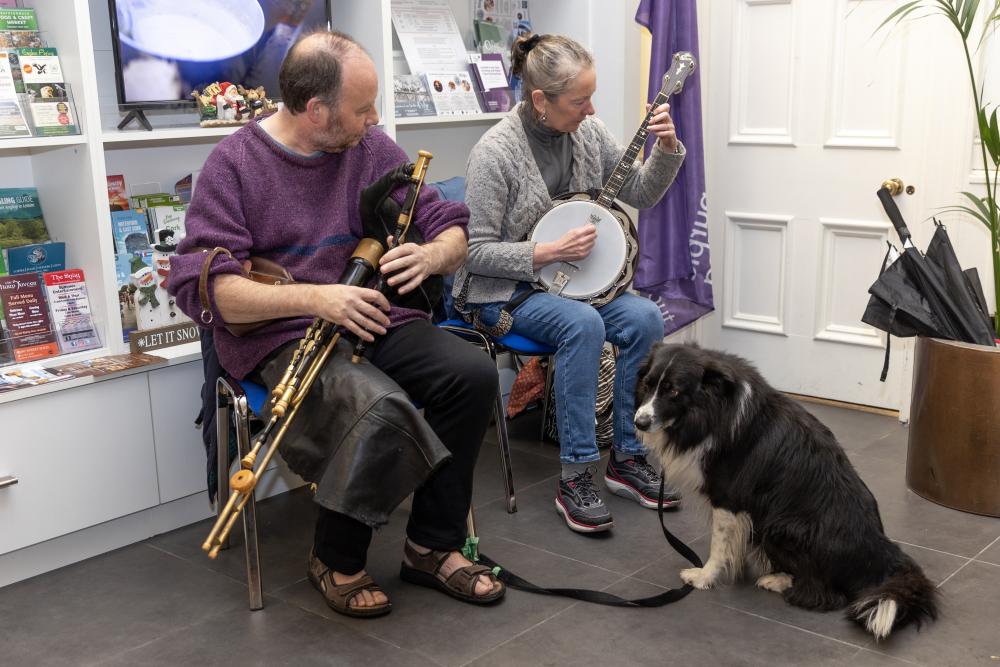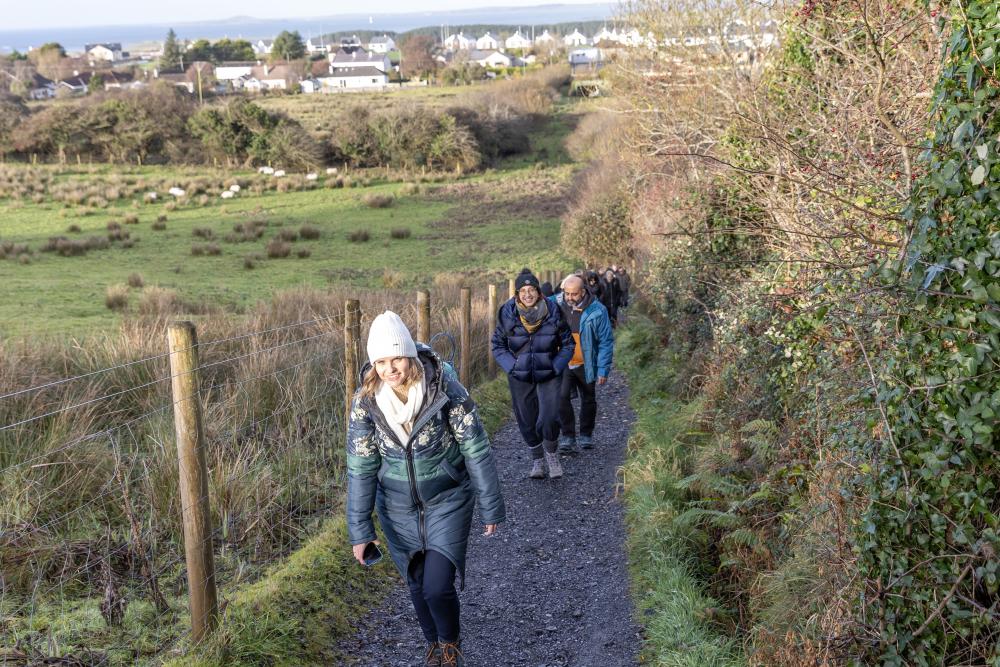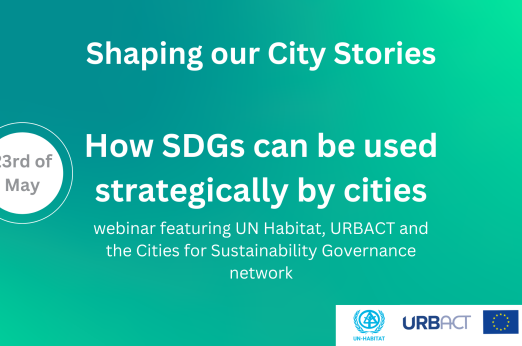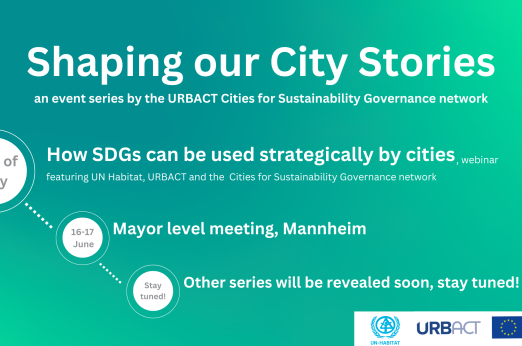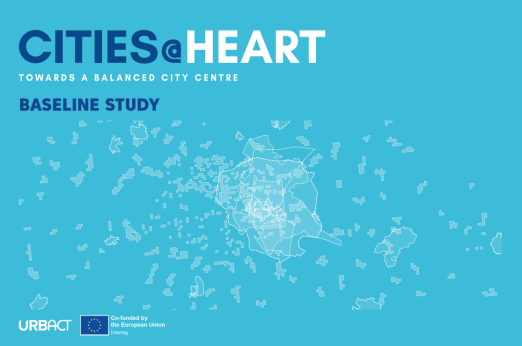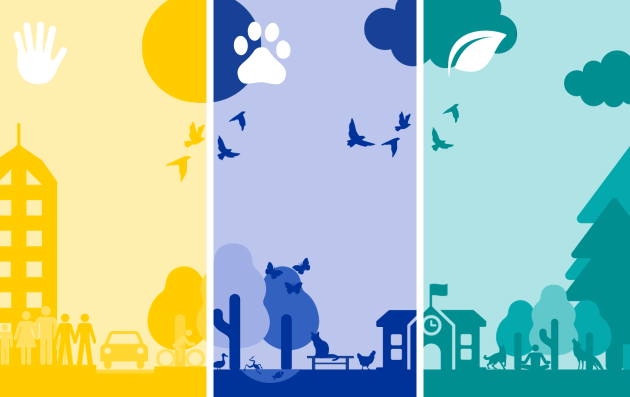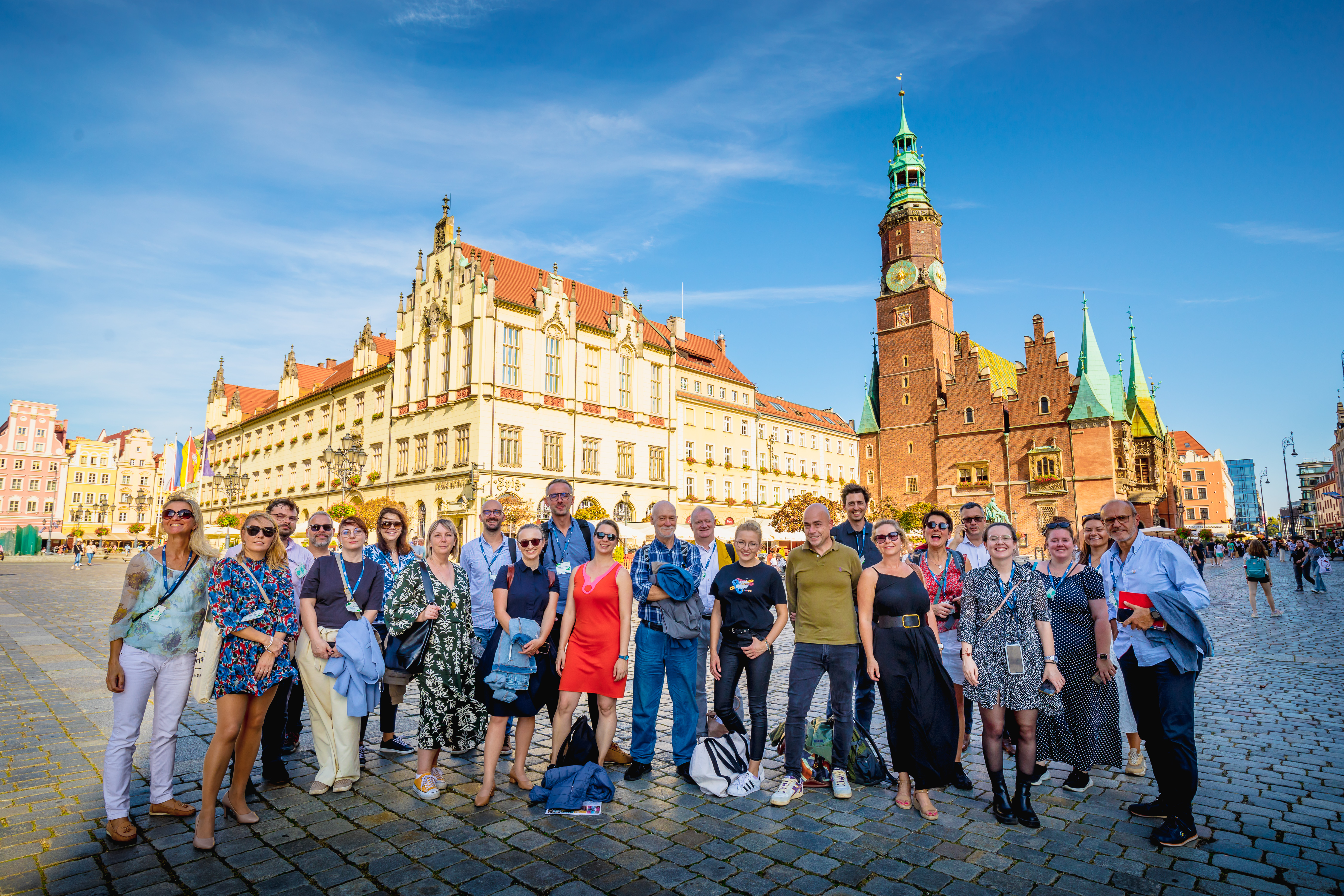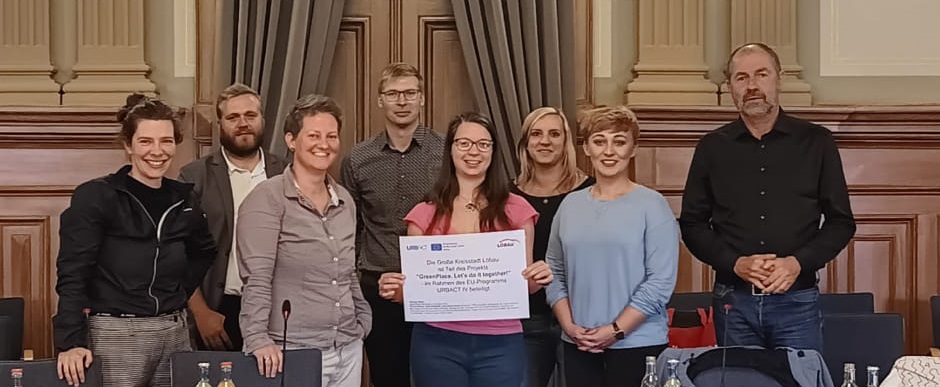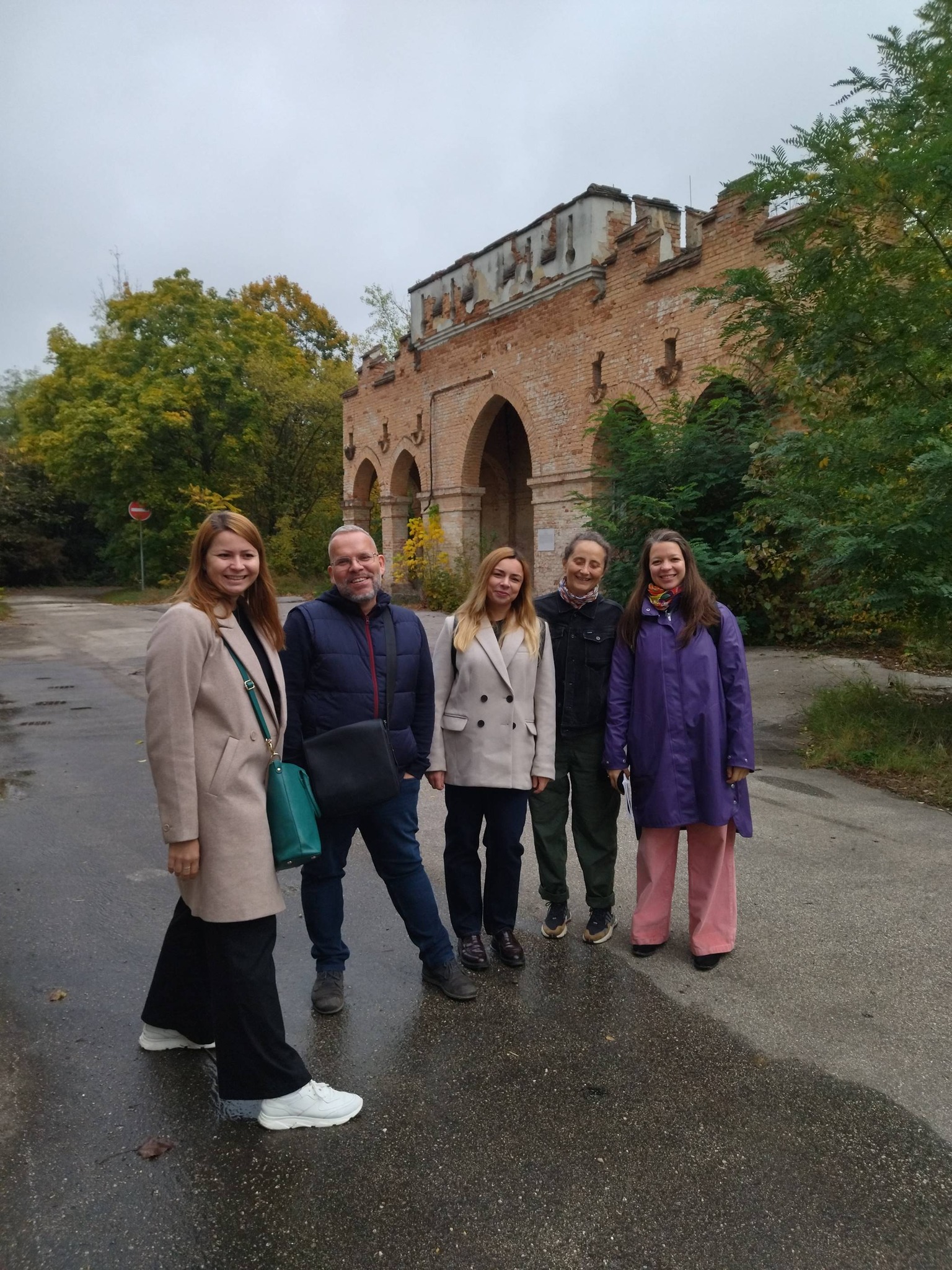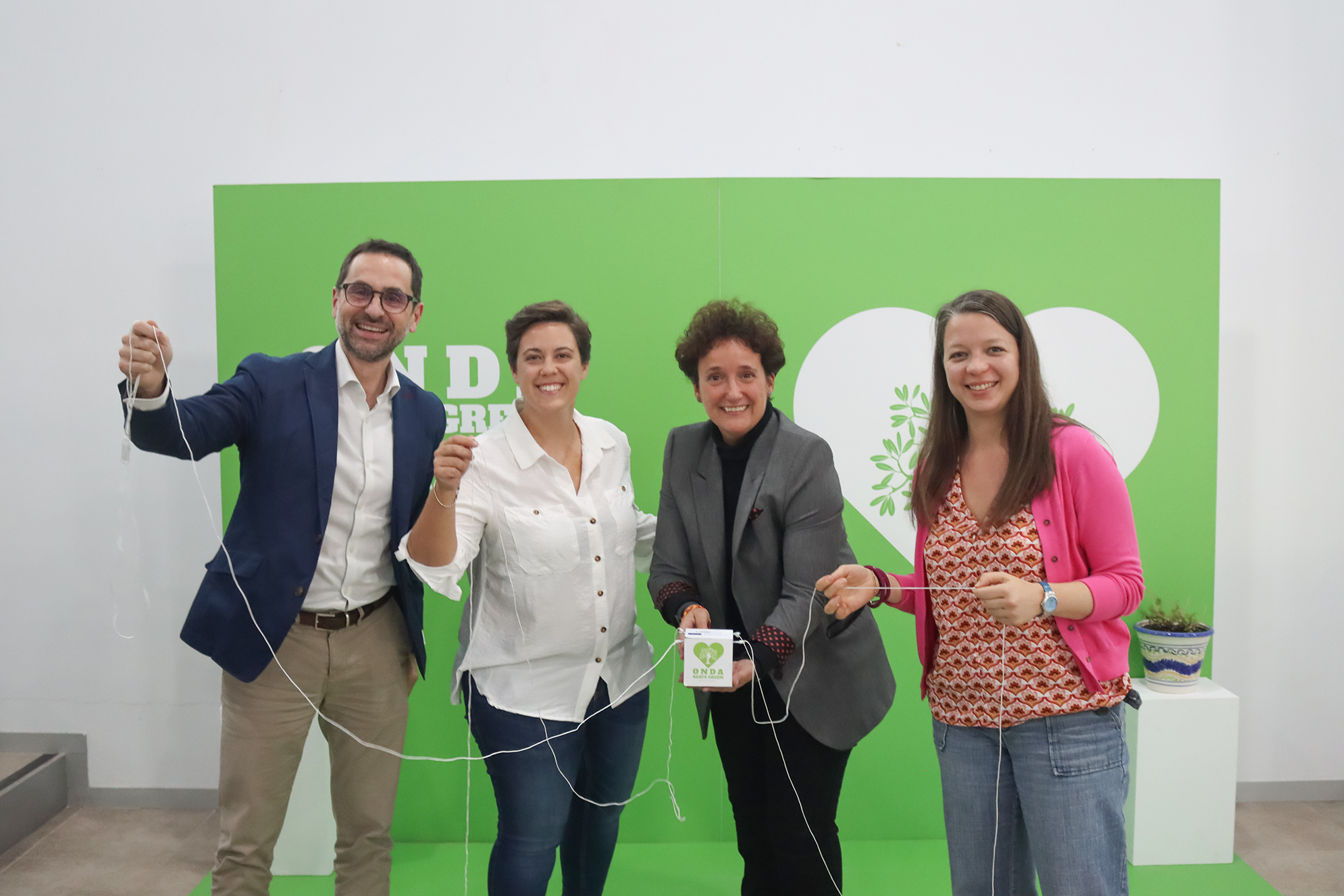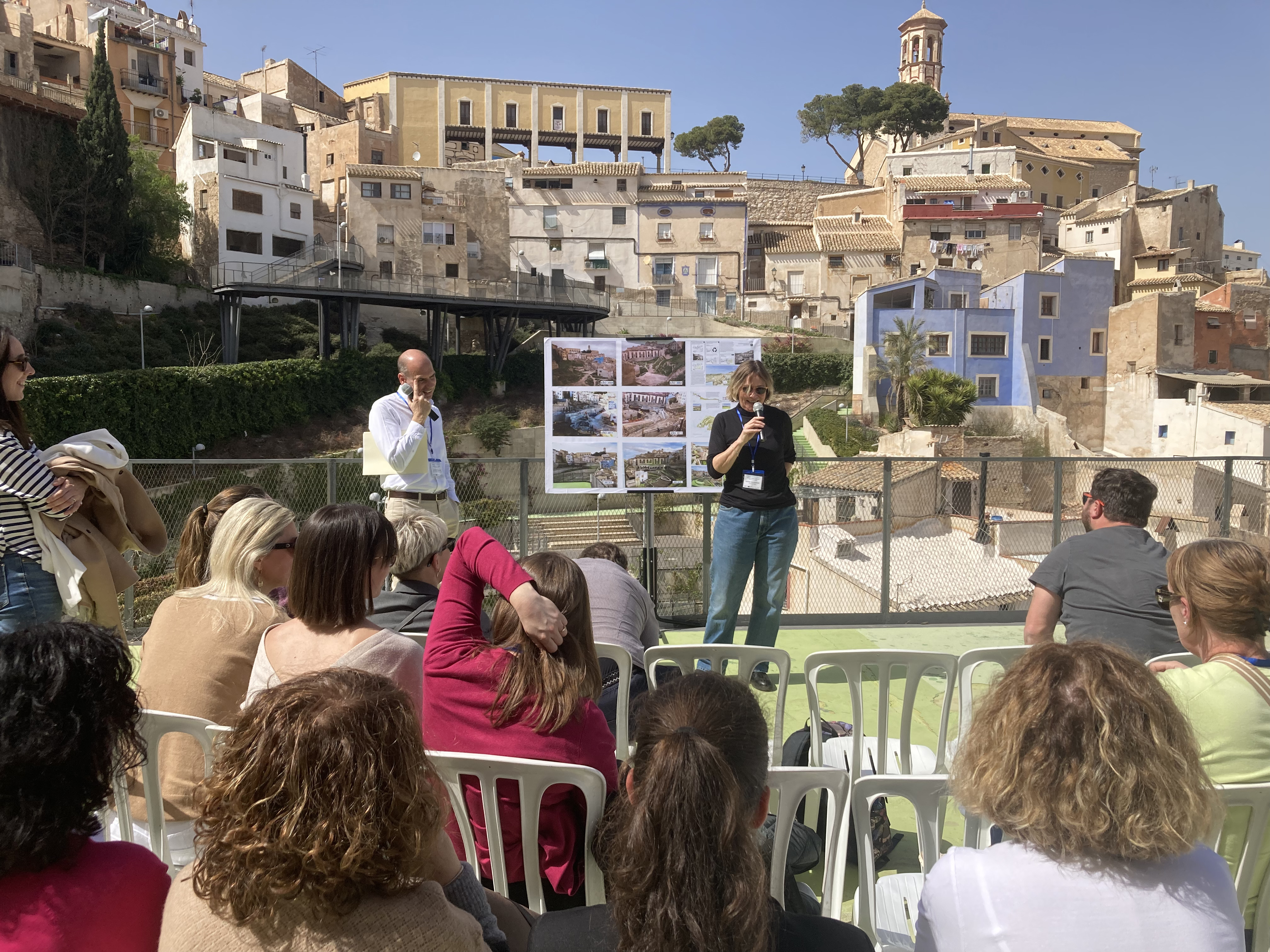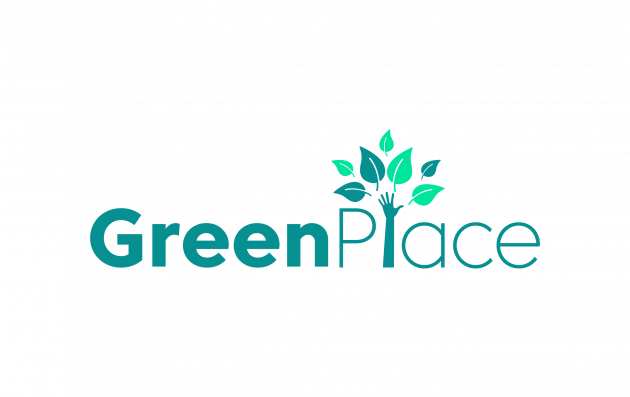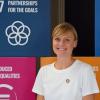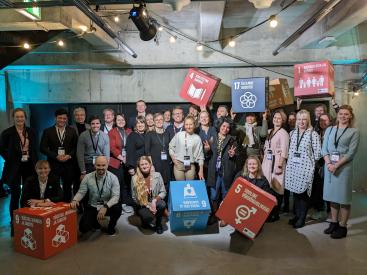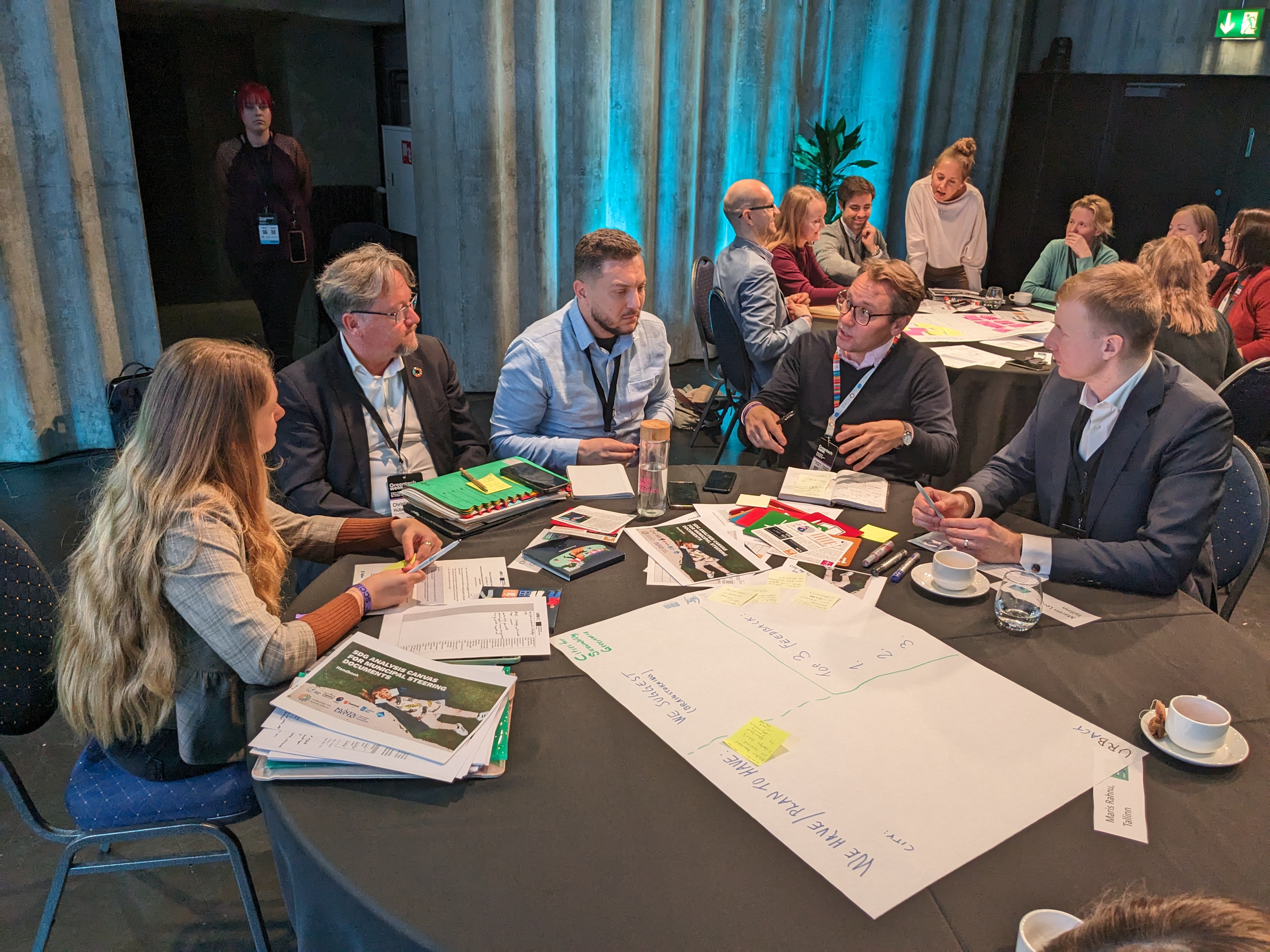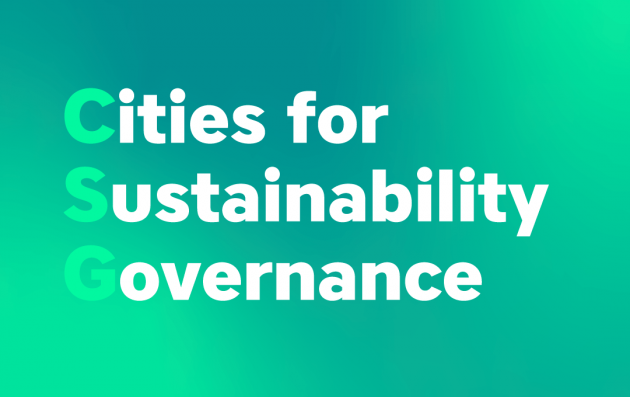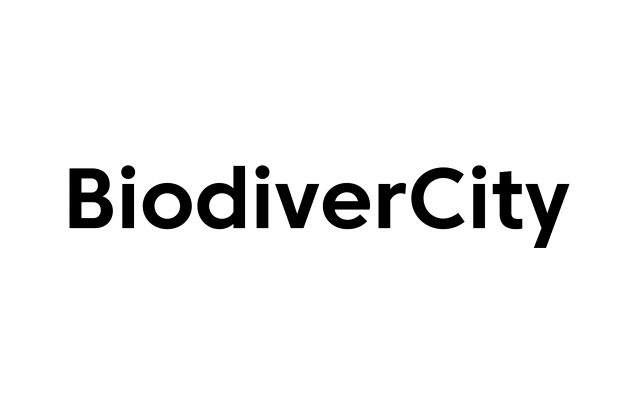The year is 2013 and few residents of Sligo, Ireland have heard of a BID, or Business Improvement District. Stakeholders in the local commerce sector operated independently and seldomly in cooperation with the County Council. Fast forward to December 6, 2023 when a group of 26 individuals from ten different countries all over Europe touched down in Sligo to glean best practices for city centre management. Sligo’s remarkable success story provided a fitting backdrop for the first transnational meeting of the Cities@Heart URBACT Action Planning Network.
Members of the Cities@Heart network and meeting attendees
Formed in 2023 and piloted by the Greater Paris Metropolis as Lead Partner, the network Cities@Heart brings together 10 different local governments working to create tools for the improvement of city centres. The first network-wide gathering since the URBACT IV launch in 2023, this transnational meeting was a new step in the network journey, an opportunity to exchange and to observe the policies of host partner Sligo County Council and Sligo Business Improvement District. Following 10 different Baseline Study Visits conducted by Lead Expert Mar Santamaria Varas, this meeting also represents the network’s shift from the preparatory to activation phase.
Meeting in the Land of Heart's Desire
The first transnational meeting provided project partners the opportunity to obtain feedback on their baseline study visit in the form of the presentation of an overarching methodology to ground the study and set the course for the following two years of inter-european collaboration.
To kick off the first morning of workshops, participants shared their experiences in the realm of public-private partnership. In Krakow (PL), the city approached the Wesoła District’s revitalization with workshops on prototyping solutions for shared spaces to build a sense of community and responsibility for its development among citizens. In Celje (SI), a vacant storefront was left to the use of local stakeholders, providing a successful brick-and-mortar testing ground for new ideas or projects. Back in Sligo, the public-private partnership has proved to be fruitful: the business perspective encourages an objective data-driven approach and the public sector can intervene to implement holistic policy improvements.
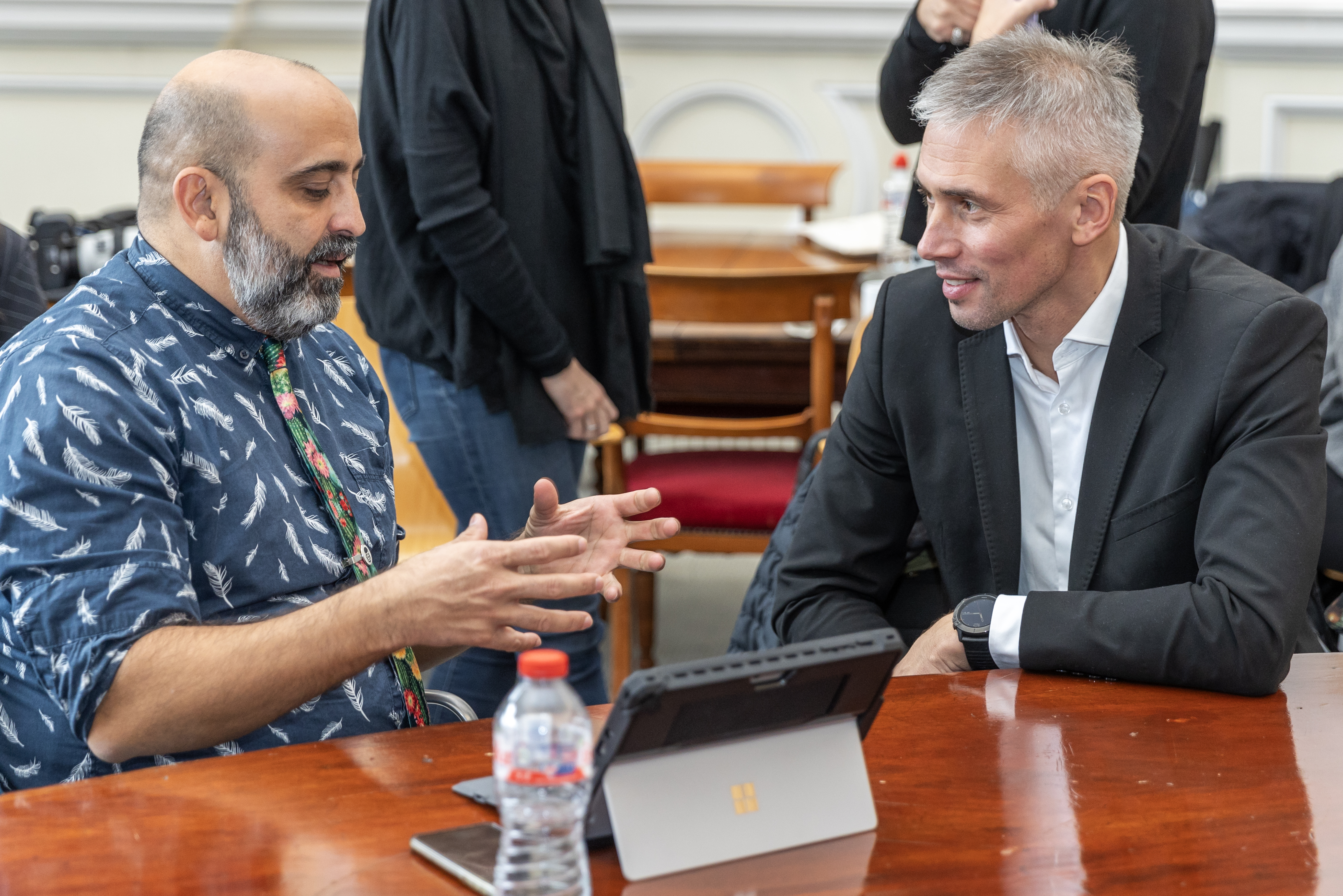
If we can make it in the city centre, we can make it anywhere
A city centre is a microcosm of social functions and represents the most intricate iteration of urban complexity. While each project partner experiences their city centre in a different way, the network Baseline Study represents the structure of all city centers using a matrix contrasting 7 challenges with 5 indicators.
From metropolises like Greater Paris (FR) or Krakow (PL) to smaller cities like Fleurus (BE), for each partner, the diverse challenges may be more or less acute depending on the local context and the means available. Indeed, an imbalance in one of these topics or challenges can greatly aggravate the local context in the city centre, as evinced by the diagrams below.
To showcase Sligo’s strengths and best practices, the meeting focused on the management of data and local commerce in the city centre. Sligo is a lovely town nestled in a blustery corner of northwest Ireland, minutes from the Atlantic Coast and known for being a literary “land of heart’s desire” with poet W.B. Yeats as a native son. Yet, none of these attributes bring to mind words like “innovation” or “world renowned”. Public policy in Ireland is centralised in Dublin and towns “west of the Shannon” are considered out of the purview of the national stage. In fact, Sligo had historically been “left behind” by urban development schemes deployed elsewhere in the Republic of Ireland.
Urban solutions with a human approach
This brings us back to the coffee anecdote… After living and working abroad in the U.S.A. and Australia, Sligo native Gail McGibbon decided to return home. In order to start what would become Ireland’s fourth BID, Gail McGibbon went to work in a seemingly slow way: meeting for a cup of coffee with likely every single business owner in the town, having no other overt objective than sharing a chat. In her seminal work, The Death and LIfe of Great American Cities, Jane Jacobs posits, “there must be eyes upon the street, eyes belonging to those we might call the natural proprietors of the street." While this declaration has taken on a “big brother” connotation since the book’s publication in 1961, the principle rings just as true today. In every city centre, there is a need to be aware of what is happening in the street and with our neighbors or shopkeepers to make sure all are safe and provided for. Indeed, neighborliness proved to be the perfect ingredient to kick-starting the town’s transformation.
As Chief Executive Officer Martin Lydon explained, in a post-pandemic society, Sligo is leveraging cultural shifts to become a destination for young professionals, students and families seeking proximity to nature and a high level of services. Looking to attract a pool of potential inhabitants keen on finding property in the more affordable western coast of the country, Sligo has invested in a place branding campaign, infrastructure to increase connectivity and the tourism sector, inaugurating their National Surf Centre and a network of cycle paths.
Turning the local economy around
Now in 2023, the Sligo BID is healthy and counts 758 members. The BID and Sligo County have worked together tirelessly to introduce innovative measures for data collection, property management, tourism policy and event nightlife. Sligo has developed a Welcome Ambassador Programme, won the Purple Flag Award for night time economy, the label of Coach Friendly Destination and continues to attract international visitors curious about the town’s policies. In the end, Sligo’s shortcomings would eventually become strengths. The lack of urban sprawl meant that the town and county could promote closeness to nature and life at a human scale. The local counter-culture turned out to be a good thing for the health of the town’s high street district.
The human-ness at the origins of Sligo’s strategy is well reflected in the national Irish Town Centre First strategy which is based at the LGMA and places pragmatism and open dialogue at the forefront. One of the measuring tools of the programme, the Town Centre Health Check Programme, is a public document that serves as an objective evaluation of the town’s progress in implementing best practices. National Coordinator Mairead Hunt presented the country’s policy at the transnational meeting in Sligo and highlighted three core principles: understanding the place, defining the place and enabling the place. The national meeting of Town Regeneration Officers shies away from speeches by elected officials and focuses on peer-to-peer learning.
Soft approach, hard data
And yet, Sligo’s strategy didn’t stop at a friendly chat. The county and BID got to work monitoring, measuring and adapting their strategies. Brían Flynn, Town Regeneration Officer, presented the town’s creative use of data in developing their policies. In 2023 the Irish business platform GeoDirectory released data on commercial vacancy in the country. At 25.4%, the rate in Sligo was listed as the highest in the country. In order to curb the negative press and further investigate the truth behind this report which seemed incomplete to local officials, the town decided to collect its own data in the form of a comprehensive land-use policy survey. The study is still being carried out but the town has already gained valuable knowledge on the vacancy profile of downtown property and 16 landowners have discovered the national Croí Conaithe scheme for refurbishment of vacant buildings.
In turn, after witnessing Sligo policies first-hand through a series of site-specific visits and presentations, the network conducted a workshop on the subject of information gathering to address issues all along the chain of data management: identifying data sources, collecting data and data governance. While obtaining data can be simpler than expected, data-driven policy requires vision and advanced planning in order to identify independent sources of information and a successful, manageable tool for translating data into actionable proposals for city improvement.
An inaugural meeting for the network and for new URBACT participant Sligo, the event was opened by Cllr. Gerard Mullaney, Cathaoirleach of Sligo County Council and attended by Irish National URBACT Point Karl Murphy and Kristijan Radojčić of the URBACT Secretariat. The meeting was drawn to a close with a hike to glimpse the breathtaking vistas at the summit of the Knocknarea rock formation, providing a bird’s eye view of the Atlantic coast and the Sligo town centre.
With one meeting completed and the new year well on its way, the URBACT Cities@Heart network has three transnational meetings planned in Granada (ES), with the Quadrilatero Urbano Association (PT) and in Cesena (IT). Ensuing transnational meetings and those of Urban Local Groups (ULGs) will allow the network to share learnings and experiment small-scale actions over the next year.
Network members :
- The Greater Paris Metropolis, France
- The City of Cesena, Italy
- The City of Granada, Spain
- The City of Osijek, Croatia
- Amfiktyonies, a business development organization representing the City of Lamia, Greece
- The City of Celje, Slovenia
- The City of Fleurus, Belgium
- The City of Sligo, Ireland
- The Krakow Metropolis Association, Poland
- The Quadrilátero Urbano Association, Portugal
